
Mabel Valdiviezo is an award-winning filmmaker and multidisciplinary artist whose work is grounded in the Latinx community and her identity as an immigrant artist. Photo courtesy of Haiku Films.
“Prodigal Daughter” explores the timely story of an immigrant woman artist who reunites with her family in Peru after 16 years of estrangement, confronting her past as an immigrant in the United States.
Director and producer Mabel Valdiviezo created this intimate documentary. She is an award-winning Latina filmmaker and alumna of the Sundance Producers Conference. Her work explores migration, gender equality and healing justice.
As a punk artist fleeing war-torn Peru, Valdiviezo came to San Francisco, California, in 1993 on a tourist visa but soon became undocumented and struggled to build a life of meaning while living on the fringes of society. Through Valdiviezo’s personal story, the film reveals the struggles of immigrant women living without a safety net and explores their challenges in staying connected with their families left behind.
This film also offers the perspective of the immigrant as well as the perspective of the families left back home in terms of how they felt when she left and how it affected their lives. “When you are an immigrant, there's expectations from the families; maybe they're thinking, ‘Oh, you're not connecting with them because you're doing so well’ that, you know, you forgot about them, or there's so many nuances to navigating those relationships,” she said.

family photos are transformed into vibrant mixed media “photo-paintings” to convey Mabel’s emotional separation from her family and her longing for reconnection and belonging. Photo courtesy of Haiku Films.
Having taken Valdiviezo 15 years to make this feature film, she believes Latinos should see more films like hers where families can reunite. “My story is particular and specific. In this climate in the United States and in other countries, many families, due to the circumstances of our immigration systems and policies, get separated geographically. A lot of it's not just geographically; it's emotionally and spiritually that we get separated,” Valdiviezo said. “I wasn't separated from my family here in the U.S., but I wasn't able to go back because I couldn't. I was undocumented.”
Like many other individuals, she wasn’t able to see her parents or siblings grow old. “There is a lot of emotion in the loss of time and also grief in a way, but there is also joy when the bonds of reconnection are brought together, “Valdiviezo said.

Mabel Valdiviezo, award-winning Latina filmmaker and artist. Photo courtesy of Haiku Films.
Her physical and mental health were affected, and she documented those difficult years through photographic self-portraits, drawings, collages and visual diaries. The film weaves vérité scenes with family photos that Valdiviezo transforms into vibrant mixed media “photo-paintings” to convey her emotional separation from her family and her longing for reconnection. Peruvian underground punk art blends with playful stop-motion animations, bringing to life her youth during Peru’s tumultuous 80s.
Produced by Haiku Films, “Prodigal Daughter” aims to raise public awareness and foster dialogue about gendered migration, family reconnection, belonging and mental health. Valdiviezo’s story is centered on her reconnecting with her family and restoring their bonds, using art as both a storytelling device and a healing vehicle.
Valdiviezo emphasizes the importance of challenging the mainstream stereotypical depiction of immigrants. “In this current climate, it is crucial to craft narratives that offer multifaceted portrayals of immigrant lives that mirror the richness of our communities,” she said. Valdiviezo achieves this goal by crafting an evocative story, intertwining her art with the Peruvian indigenous artwork of her mother, Bila Flores.

Artist Mabel Valdiviezo reunites with her family in Peru after 16 years of silence, confronting haunting childhood memories and a troubled past. Photo courtesy of Haiku Films.
“‘Prodigal Daughter’ is a compelling and insightful story that is both personal and universal, opening the door to conversation about largely unspoken and difficult issues,” said Mary Johnson Rockers from the North Carolina Farmworker Health Program at the North Carolina Department of Health and Human Services. “Mabel’s film will aid in deepening our understanding of farmworker families’ experiences with mental health, and will strengthen our efforts to address these issues in our work.”
“In the mainstream media, society and in general, there is a presumption that the immigrant is always the other and the other may be seen as less. The U.S. is always politicizing the aspect of immigration,” she said. Valdiviezo also spoke about the negative representation of Latinos on the big screen, who are always portrayed as shady bad characters or the good immigrant, who ends up as a hero character. “The rest of us are not represented in those two equations, and even then, everybody is much more complex than that,” she said.
In the mainstream media, immigrants are generally portrayed as stereotypes, but Valdiviezos' story falls outside those norms. “Looking at my story, I can't say, ‘Oh, I'm a good immigrant or a bad immigrant,’ and I don't want to fit into those boxes because that's too binary, too black and white and too constricting,” Valdiviezo said, “I believe that when we show our humanity, we could be more understanding of the human journey or the immigrant journey. I feel very connected to the immigrant storytelling community and the Latinx community.”
As an immigrant artist and filmmaker, Valdiviezo believes it is important to represent the Latinx community in the film industry. “It's been very common to see Latino and Latinx stories for a long time, but having the stories told from our perspective, from the ones who are from the culture, is really something that, you know, we always had to sort of like negotiate in the industry,” Valdiviezo said. “We need more representation of our stories by the creators in the way that the creators themselves are from Latino culture, Latino ancestry, Latino descendants or Latino immigrants. Because I believe that it leads to real-life aspects.”
Valdiviezo also told CALÓ News that it’s really different when another individual from a different culture tells the stories of the Latino community. “One thing is to see it from a different culture and see it with all their assumptions and biases, and the other thing is to see it from our cultural experience and even more from the storyteller's lived experiences,” she says. Valdiziezo believes that there’s still a need to keep advocating for that in the industry and for more Latino storytelling.

Visual diary entries, drawings, and photo self-portraits depict Mabel’s years living as an immigrant stripper in San Francisco. Photo courtesy of Haiku Films.
In addition, Valdiviezo also wants her film to show how Latinos struggle with mental health issues and are affected by them. “The mental health aspect is really crucial. I think that we, as the Latino community, are starting to see and be a little more open in the discussion of mental health. But we need to frame it differently because our Latino community is nuanced by the meaning of mental health, as we all come from different cultural practices, you know, from the Catholic to medicinal based on indigenous beliefs, to all in between,” Valdiviezo said.
She also believes that it is crucial to embrace talking about mental health. “Maybe we make mental health more like a Eurocentric kind of approach, you know, but when we open it up, like, OK, is it really mental health or is it really mental wellness?” she said.
Valdiviezo said that the Latino community doesn’t always have to rely on going to therapy and that there are other ways to cope with mental health, such as doing art for empowerment or art for wellness.
"Art has always been my refuge. Filming and painting my story of reconnection with my family has helped me to make sense of my journey and heal the bonds with my family. I aim to expand conversations on inclusive immigrant mental health care and educate viewers about immigrants' contribution to our economy and their right to be treated with dignity,” Valdiviezo said.
The filmmaker and artist plans to grow a robust social impact campaign and partner with immigrant and women organizations, bringing the film to community centers, schools, and broadcast and online audiences. The project is currently seeking support from sponsors and donors to launch the social impact campaign.
World Premiere: Los Angeles Latino International Film Festival (LALIFF)
Thursday, May 30th, 7:00 PM @TCL Chinese Theatre - Cinema 3
Prodigal Daughter - Trailer 2024 from Mabel Valdiviezo on Vimeo.

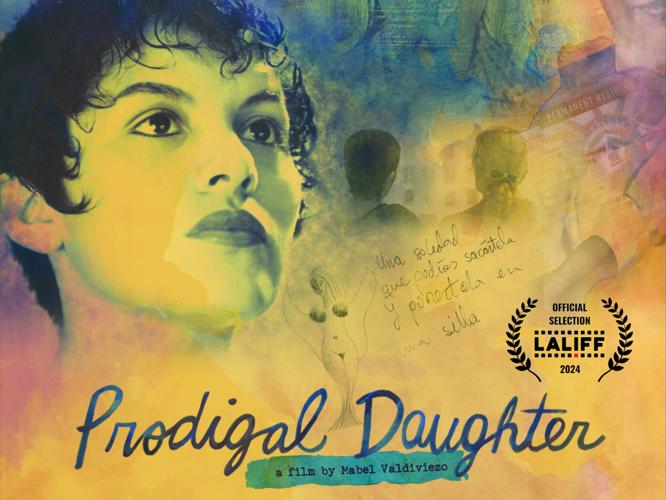
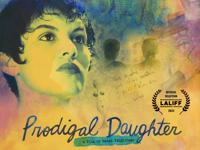

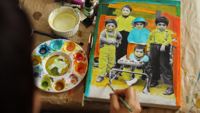

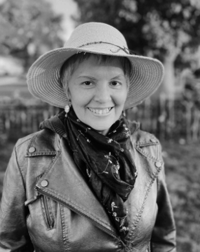

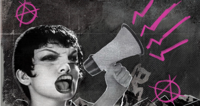

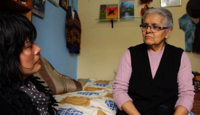








(0) comments
Welcome to the discussion.
Log In
Keep it Clean. Please avoid obscene, vulgar, lewd, racist or sexually-oriented language.
PLEASE TURN OFF YOUR CAPS LOCK.
Don't Threaten. Threats of harming another person will not be tolerated.
Be Truthful. Don't knowingly lie about anyone or anything.
Be Nice. No racism, sexism or any sort of -ism that is degrading to another person.
Be Proactive. Use the 'Report' link on each comment to let us know of abusive posts.
Share with Us. We'd love to hear eyewitness accounts, the history behind an article.